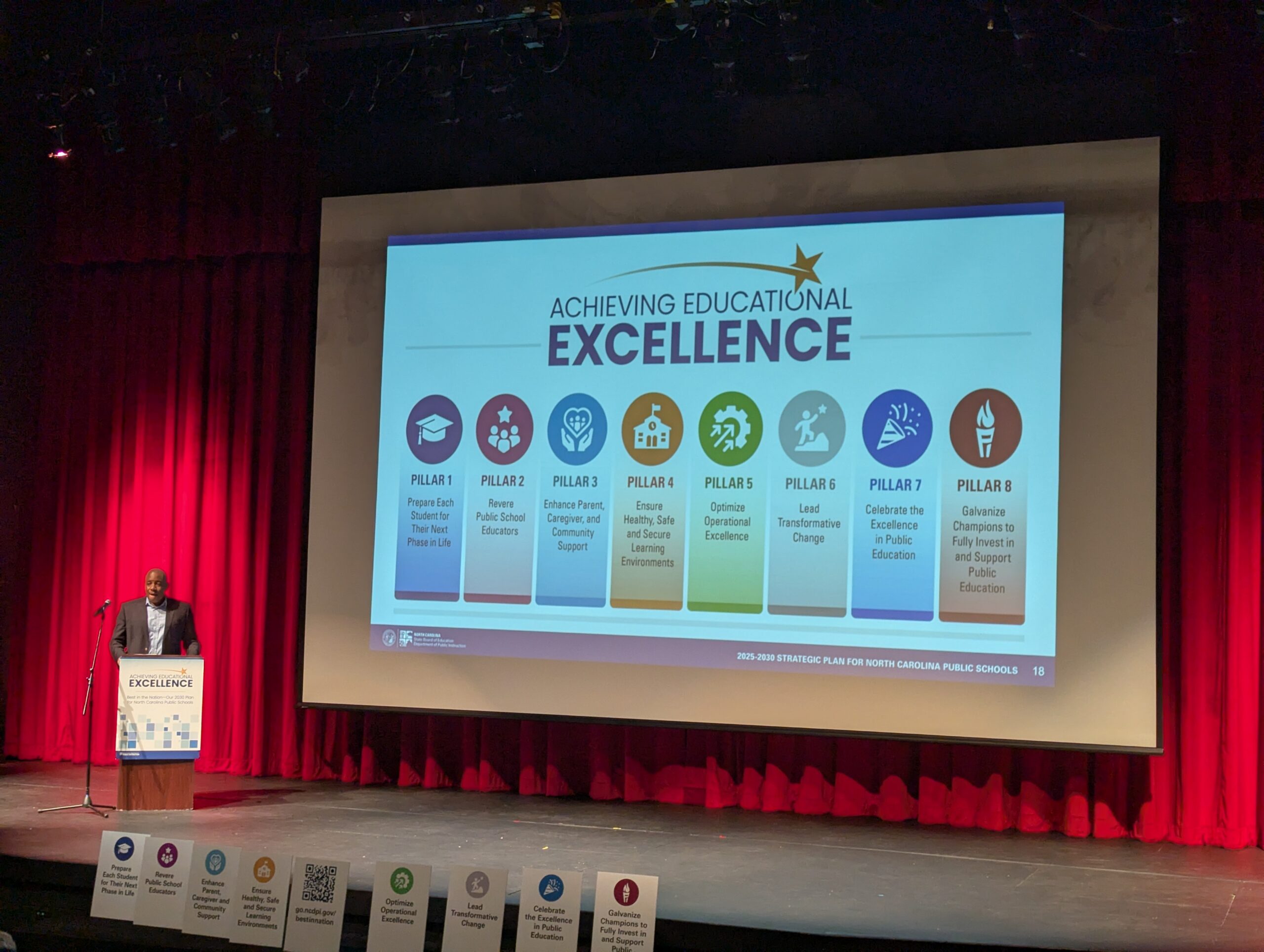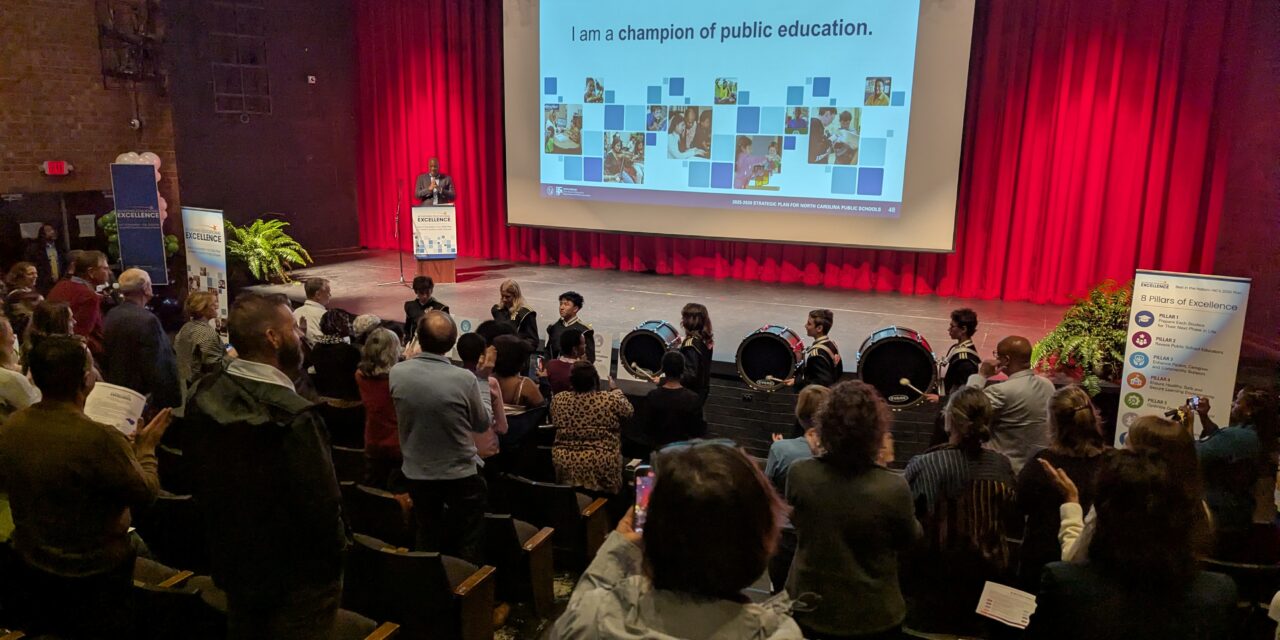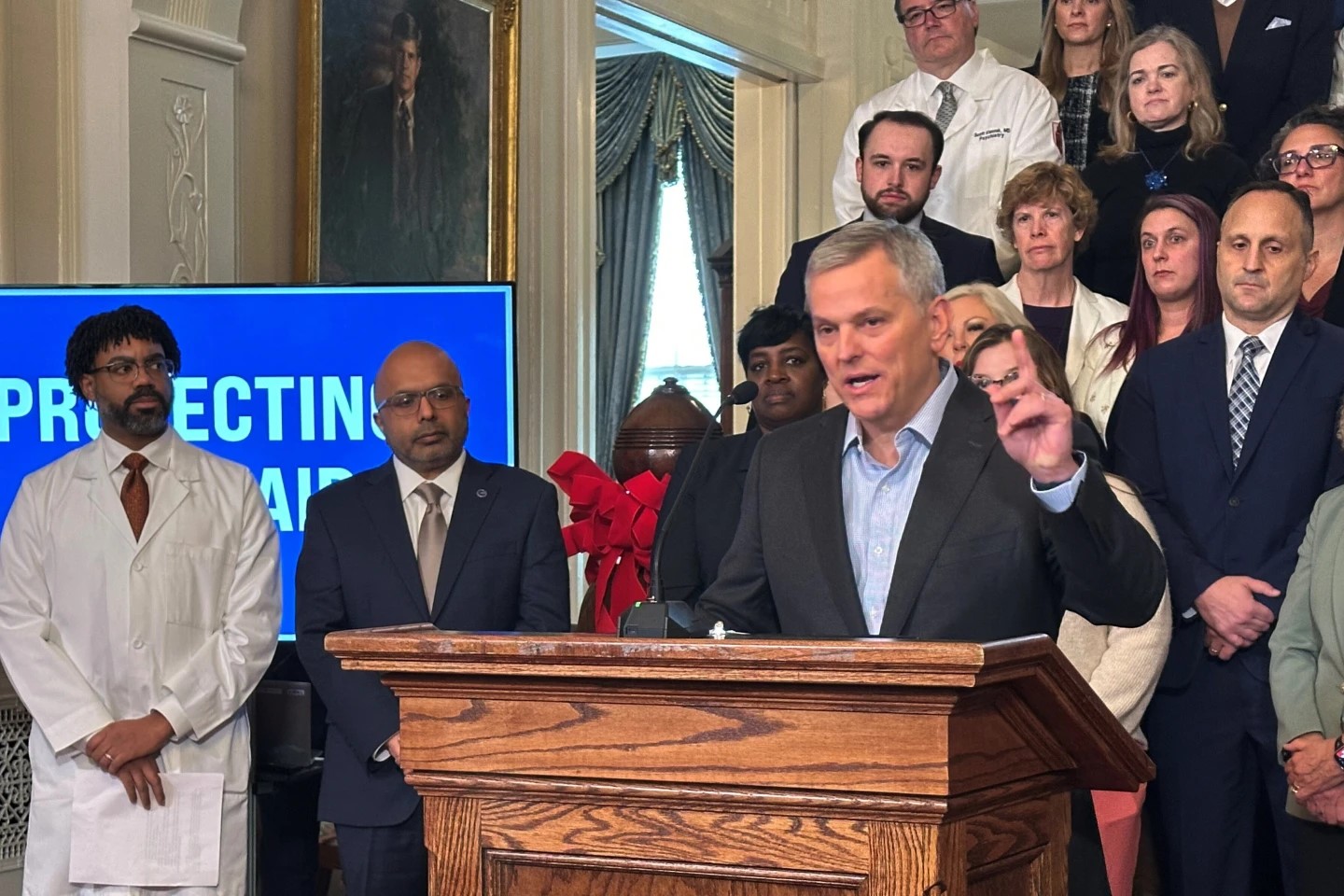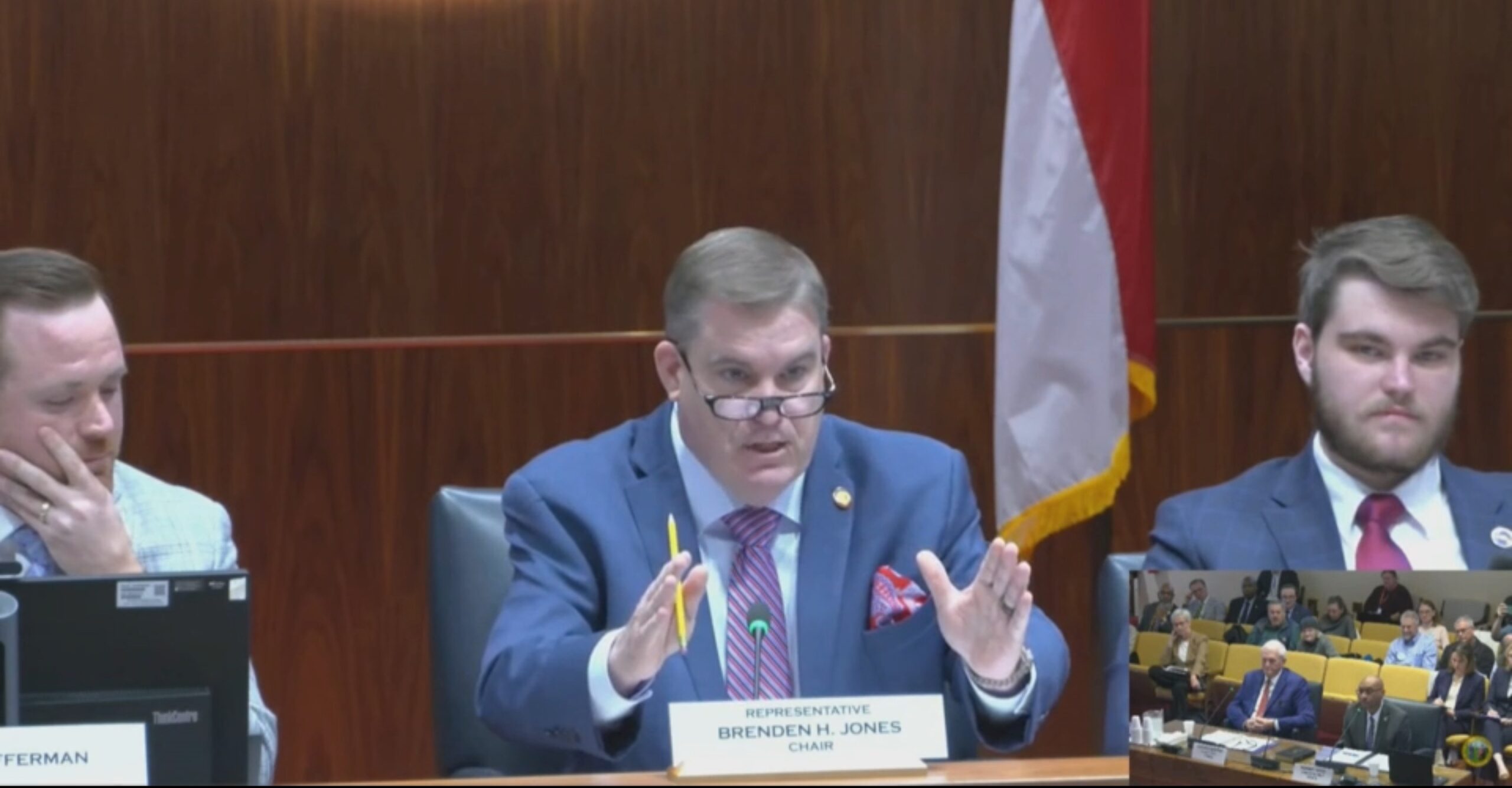North Carolina lawmakers still have not reached agreement on a state budget, now almost five months into the fiscal year. The state government can operate on last year’s budget, but that is still leaving many agencies underfunded, including public schools, and state employees like teachers going without a raise.
In that context, it is not easy to imagine North Carolina implementing an ambitious plan for school improvement — but state superintendent Mo Green has been touring the state this fall to push for exactly that.
“By 2030, North Carolina will have the very best public education system in the entire nation,” Green said in October at Chapel Hill High School, where he wrapped up a statewide tour to promote a plan called “Achieving Educational Excellence.”
Click here to read the plan in full.
Developed after hearing from residents across North Carolina on an earlier listening tour, Green’s plan includes 110 action items and a measurable set of goals. Those goals include becoming tops in the nation in fourth- and eighth-grade reading and math scores, ACT scores, participation in career and technical education programs, participation and performance on AP tests, and high school graduation rates – all in the space of five years.
“Some will say that this plan is too bold; we need to prove them wrong,” Green said. “Some will say it’s impossible; show them that it’s inevitable. Some will say it costs too much; remind them that ignorance costs more.”

The “Achieving Educational Excellence” plan includes eight pillars. (Photo by Aaron Keck/Chapel Hill Media Group.)
The state board of education unanimously approved the plan back in August, and those in attendance at Green’s Chapel Hill presentation said they too were impressed and ready to get on board – including Chapel Hill-Carrboro school board chair George Griffin and superintendent Rodney Trice.
“I love how it’s forward-looking,” said Griffin. “It talks about teachers, it talks about students, it talks about family engagement. And to me that’s exciting, especially in these troubled times for public education.”
“I’m really excited to get started,” Trice agreed. “Becoming best in the nation, I think that’s something we can aspire to – and certainly it’s achievable.”
Of course one major obstacle will be funding: a recent report from the Education Law Center ranks North Carolina 48th in the nation in per-pupil spending – behind even Alabama and Mississippi, and nearly $5,000 below the national average. And the General Assembly’s ongoing budget impasse has kept school funding at last year’s levels.
But Green said he still believes his plan is achievable — if lawmakers are willing to do their part.
“Every step along the way, we’ve tried to engage our General Assembly members in the listening and learning effort,” he said. “We got comments (on a draft) from members of the General Assembly in both parties. So that’s what we’ll continue: we’ll constantly and consistently engage with members of the General Assembly, trying to be sure that they understand that they have a part to play in this as well.”

Mo Green speaks to reporters after his presentation at Chapel Hill High School. (Photo by Aaron Keck/Chapel Hill Media Group.)
And Green added that it’s not just about the General Assembly: it’s about everyone joining forces to achieve an ambitious but positive goal.
“Come along for the ride,” he concluded, “because when you do, and the General Assembly does its part, then we can make this happen.”
Featured photo: Mo Green leads attendees in a pro-education chant, accompanied by a school band. Photo by Aaron Keck/Chapel Hill Media Group.
Chapelboro.com does not charge subscription fees, and you can directly support our efforts in local journalism here. Want more of what you see on Chapelboro? Let us bring free local news and community information to you by signing up for our newsletter.







